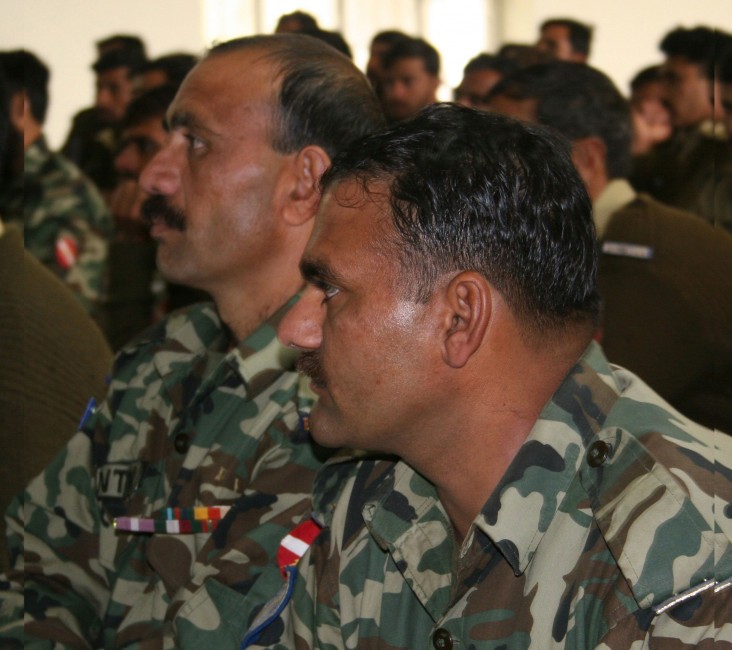
To help the government of Pakistan promote earthquake-resistant reconstruction, USAID sponsored a project with Nepal’s National Society for Earthquake Technology to train local organizations, engineers, masons, and carpenters in safe building practices. The society also shared its expertise with Pakistani army engineers as they embark on assessing the severity of earthquake damage to homes. The military’s assessments determine the level of government compensation for families and help them guide local residents to build stronger houses than before.
Over several three-day workshops held in Shinkiari in the North West Frontier Province and Muzaffarabad in Kashmir, 600 military engineers learned the principles of safe construction and conducted fieldwork to identify unsafe locations and assess structural damage. Military engineers also learned how to categorize degrees of damage to load-bearing walls, corners, beams, and roofs.
At the first workshop in Shinkiari, 81 military engineers who had spent months after the earthquake building emergency shelters and clearing landslides for the delivery of relief supplies now filled a school. Waqas Hanif, project manager for rural housing reconstruction for the government’s Earthquake Reconstruction and Rehabilitation Authority, said the military is well-placed to conduct assessments because of its technical expertise and ability to mobilize quickly. “It is a great service that the Pakistan military is doing for the government,” Hanif said. With their newly gained knowledge, military engineers are building safer structures to protect future generations from the disaster that today’s generation is working hard to recover from.







Comment
Make a general inquiry or suggest an improvement.